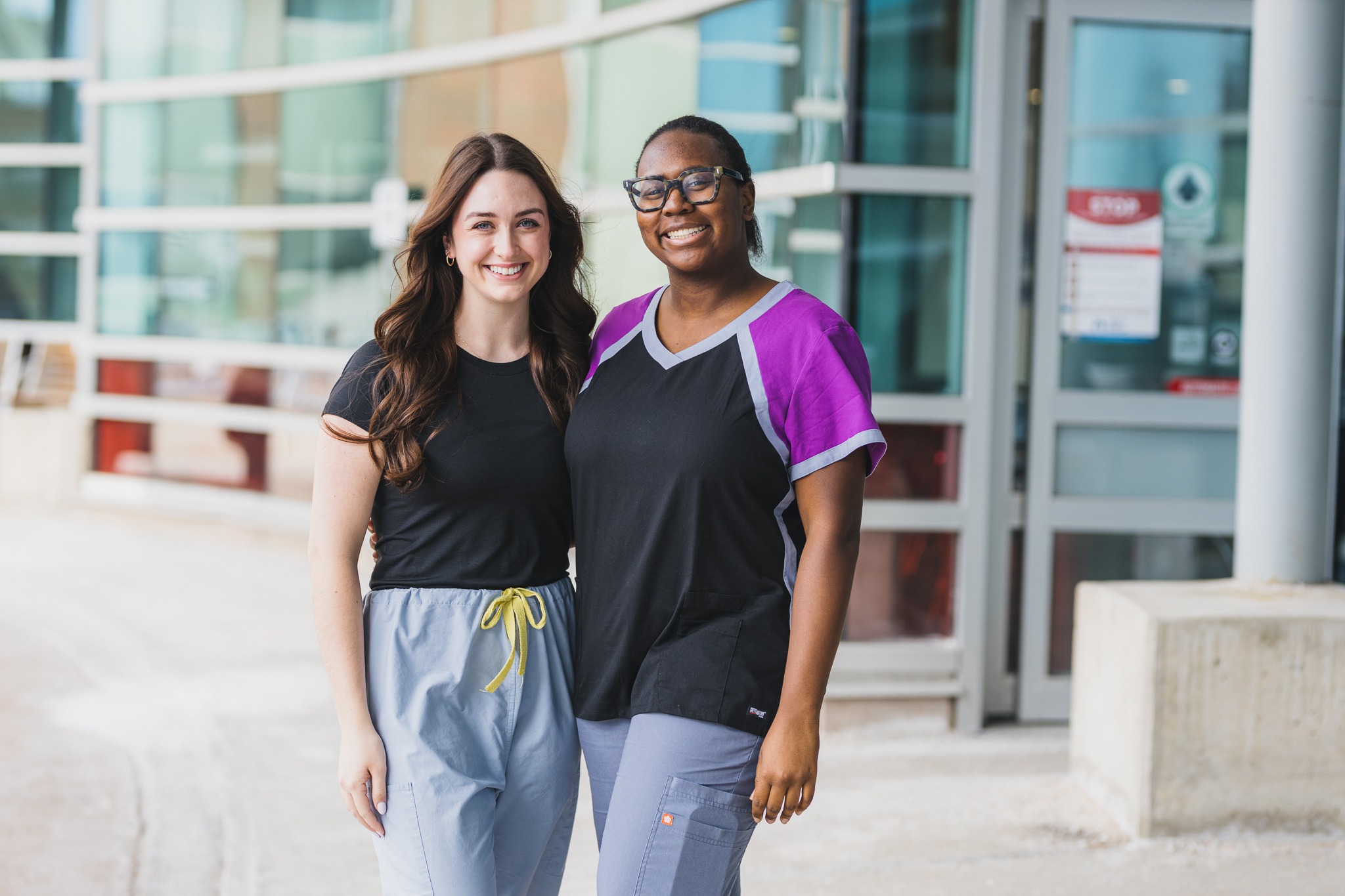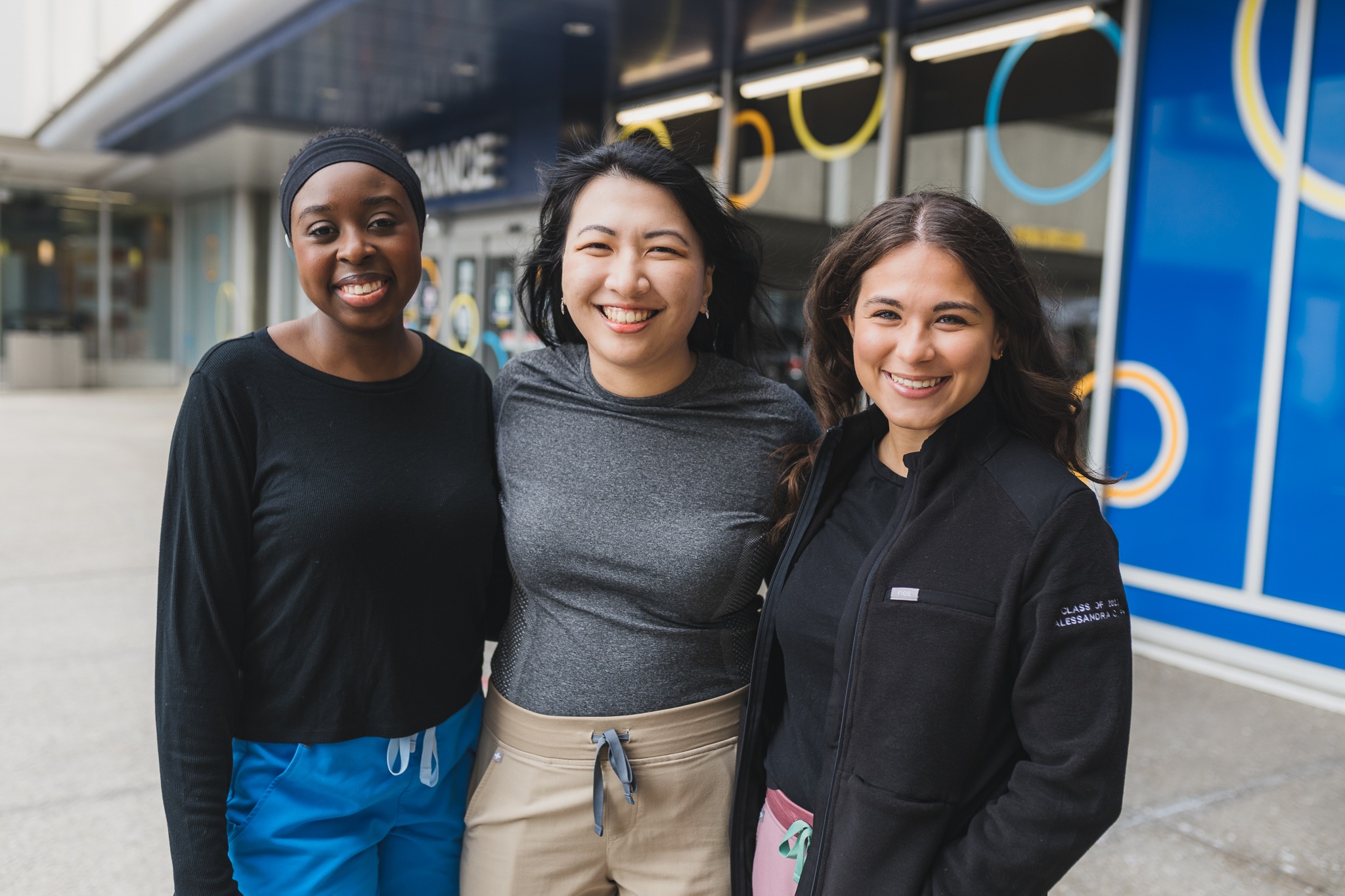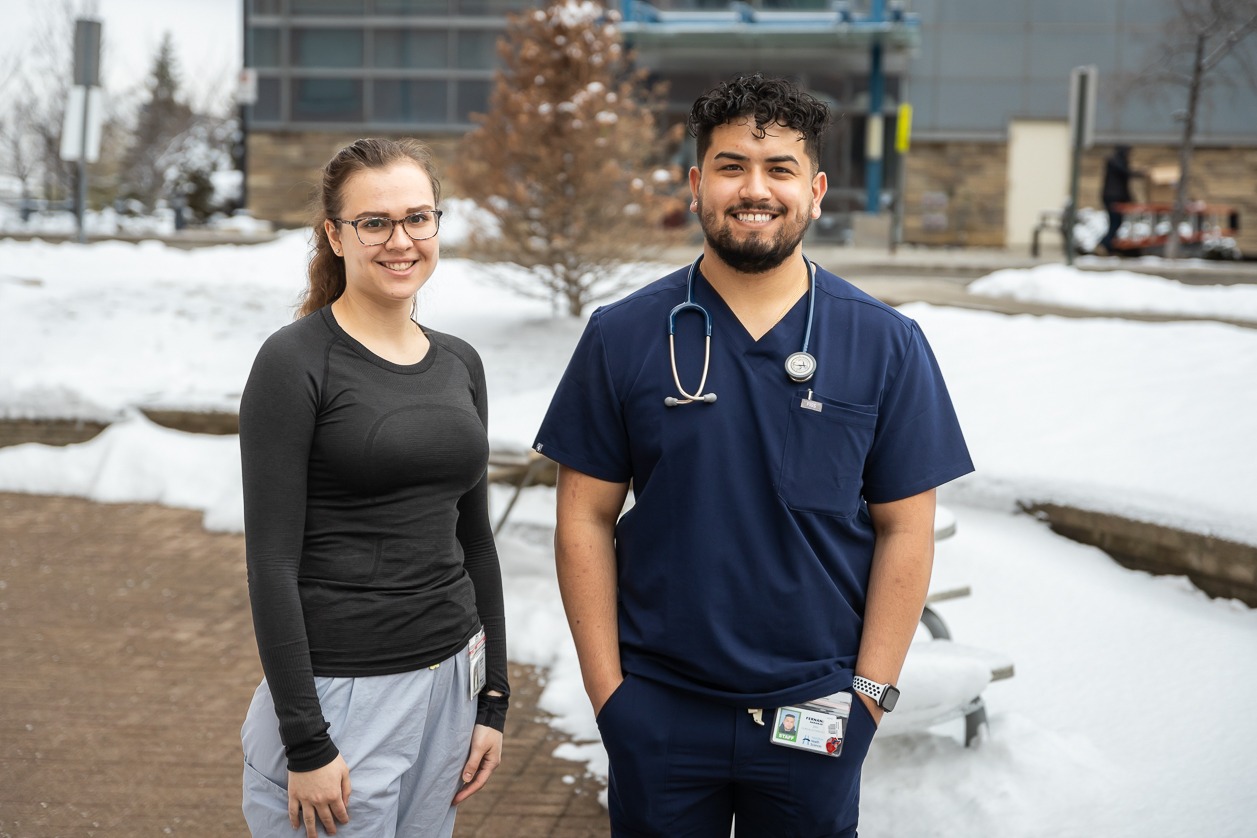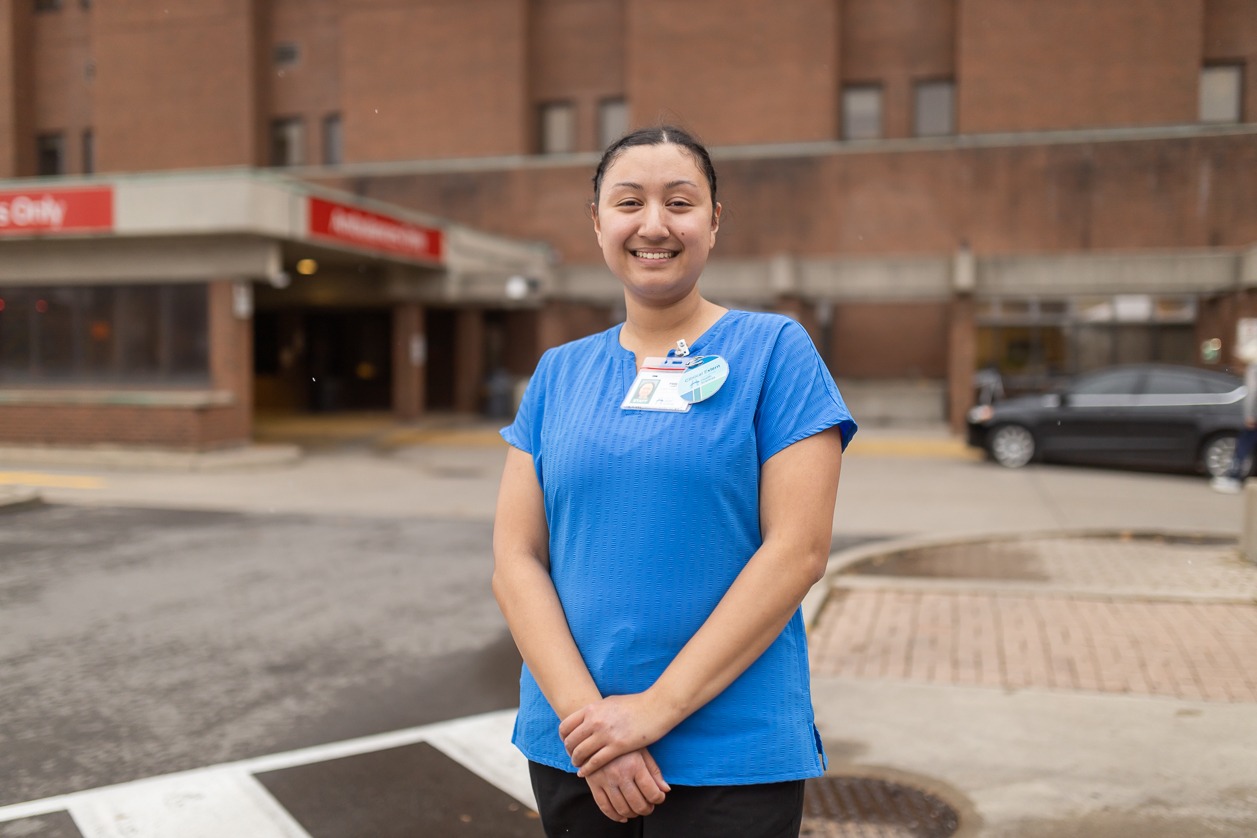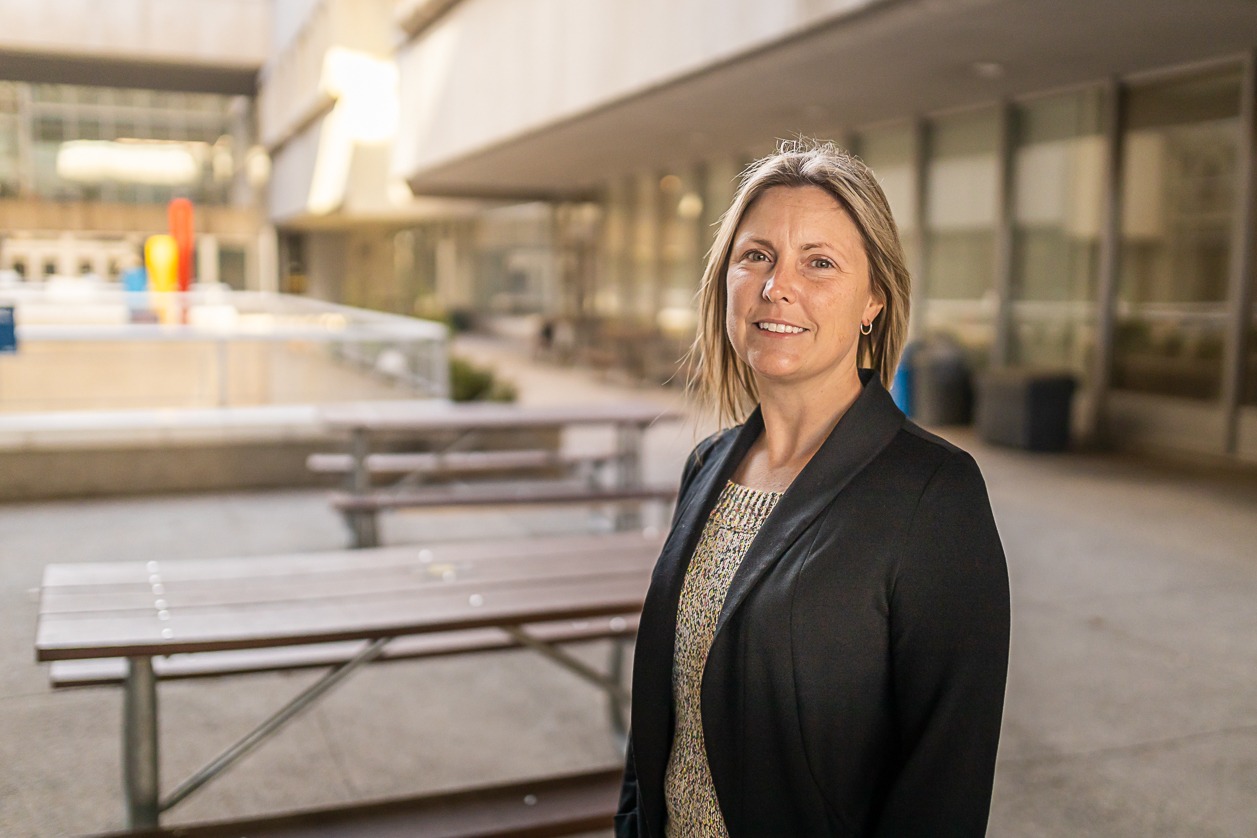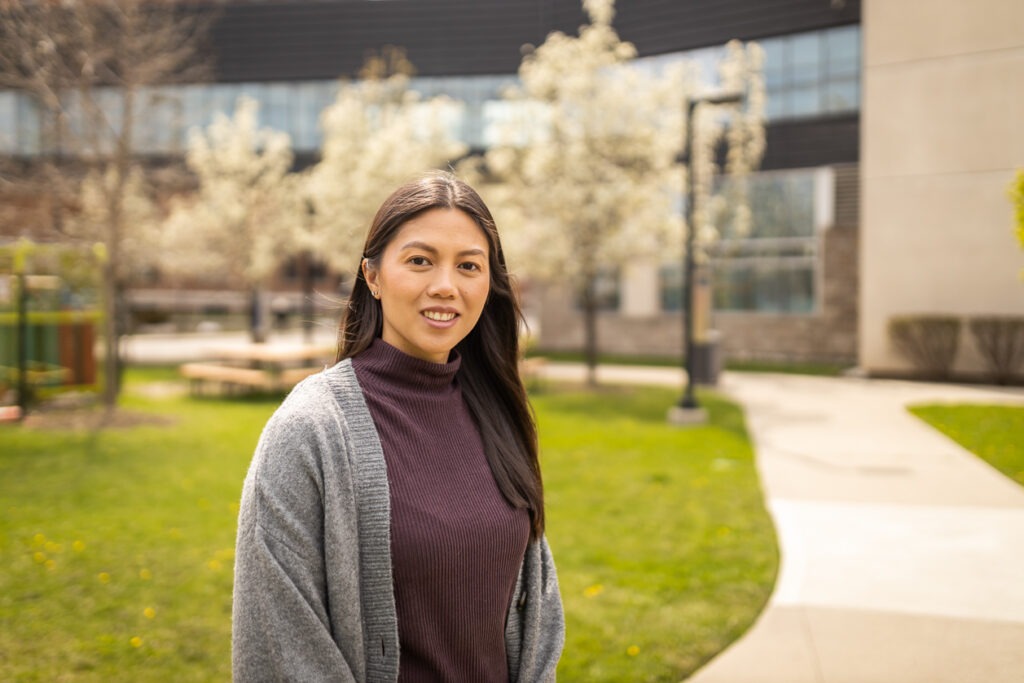
Introducing a clinical extern coordinator
Supporting student employees
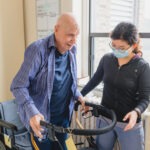
HHS hires health-care students to work as externs.
Staffing shortages triggered by the pandemic continue to impact hospitals across the province, including Hamilton Health Sciences (HHS). One of the innovative ways that HHS is addressing shortages is through the provincially-funded clinical extern program, created by the province to provide additional health-care support to hospitals.
Senior university and college students in nursing, occupational therapy, respiratory therapy, physiotherapy and paramedic programs can apply to work at HHS hospital sites as clinical externs while they’re in school. They work at least one shift per week, with a typical shift being eight to 12 hours.
These student employees are supported by HHS clinical extern coordinators, whose role includes acting as liaisons between externs and their hospital teams and leaders. Christine Hui shares more about her role as a clinical extern coordinator — helping the next generation of health-care workers gain valuable work experience and launch careers after graduating.
A champion for the next generation of health-care workers
After working for nine years as a physiotherapist with cardiac surgery patients at HHS, Christine Hui decided to try something new.
“I really enjoyed my team and the patient population, but I also felt that it was time for a change,” says Hui, who started looking for new opportunities at HHS last year. “HHS is a large hospital system with lots of opportunities for staff wanting to try new roles,” says Hui, who found a job posting for a clinical extern coordinator on the HHS website and successfully applied.
“I felt that this position would be a perfect blend of my professional knowledge and my passion for teaching and student learning,” says Hui, who’s also an assistant clinical professor with the physiotherapy program at McMaster University’s School of Rehabilitation Science.
Plenty of variety
“At HHS, there are many opportunities for growth, new experiences and career challenges.”
Hui is one of five HHS clinical extern coordinators and the only one with a physiotherapy background. The others are from nursing and respiratory therapy. Coordinators provide mentorship, coaching and skills training to clinical externs.
“It’s a lot of relationship building, including daily check-ins with our externs to see if they have any questions or concerns,” says Hui. “The job is a little different every day.”
Recruiting future health-care workers
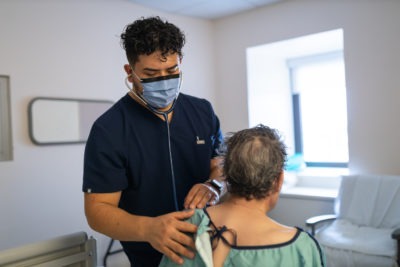
HHS clinical externs like Fernando Naranjo play an important role in helping to address staffing shortages.
Hui’s goals include recruiting externs for permanent positions at HHS once they graduate. Coordinators can organize introductions with leaders in areas where externs would like to launch their careers. They can also set up job shadow days and help with resume and interview advice.
Once an extern is offered a permanent position, coordinators can help with the transition from student employee to staff member.
Since launching the clinical extern program in early 2021, HHS has hired 156 nursing clinical externs as registered nurses and registered practical nurses after they graduated, as well as 11 respiratory therapy externs as respiratory therapists.
Eighty-one nursing externs graduated in April, along with nine respiratory therapy externs. In August, 11 occupational and physiotherapy externs will graduate. Most graduates choose careers at HHS. For those who don’t, it’s typically because they’re returning to their hometowns to work.
“While finding a permanent position will be the first step in their careers, it doesn’t need to be the final step,” says Hui, reflecting on her own 10 years at HHS.
“We’re a large hospital system where transferrable skills are recognized. There are many opportunities for growth, new experiences and career challenges.”

